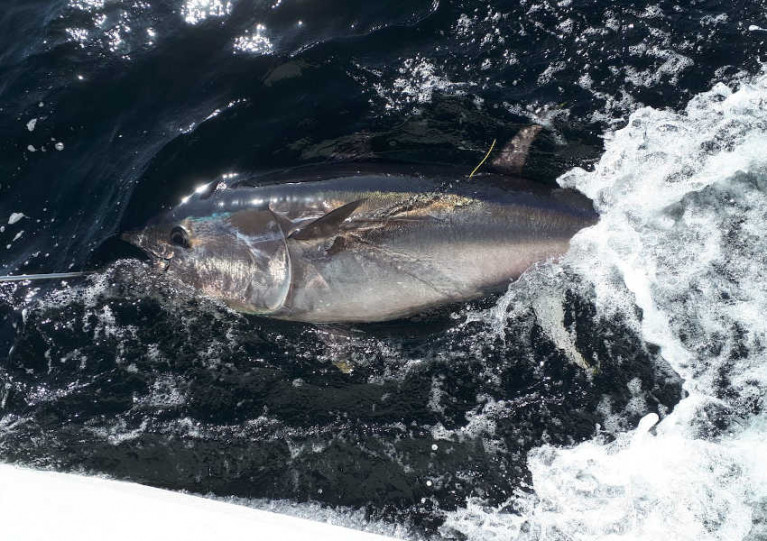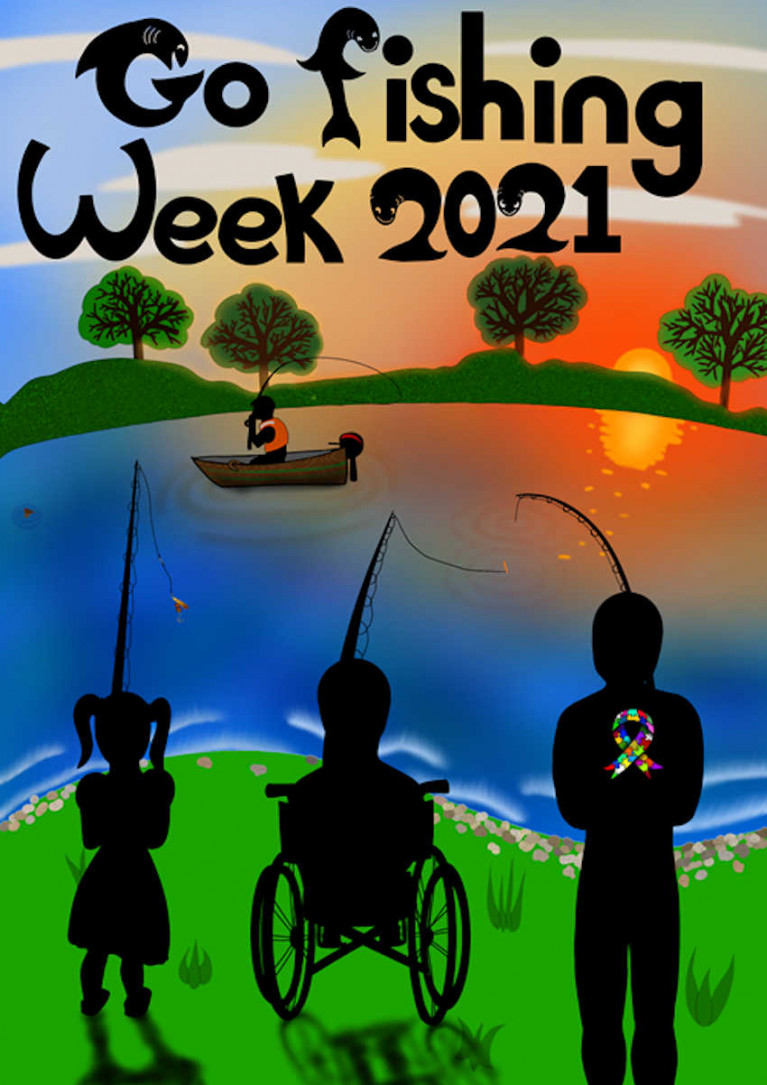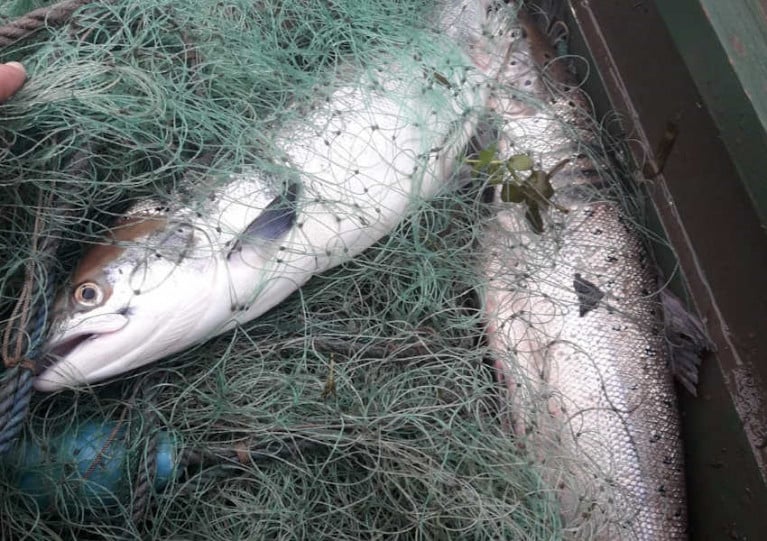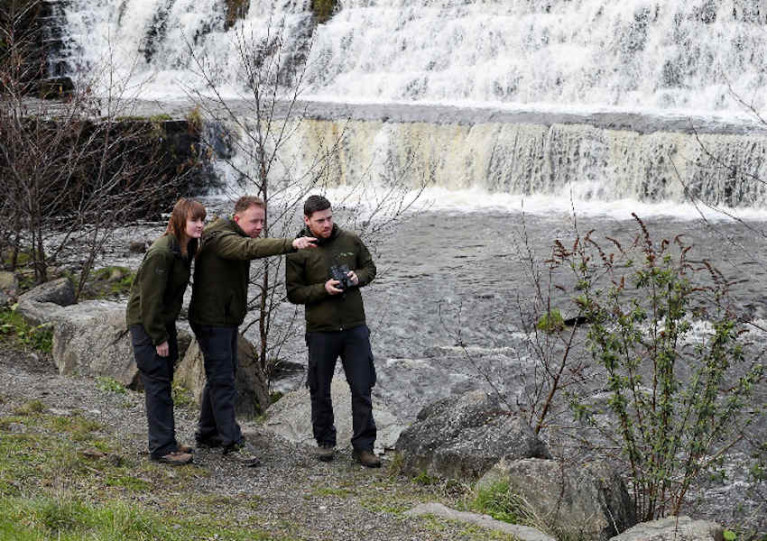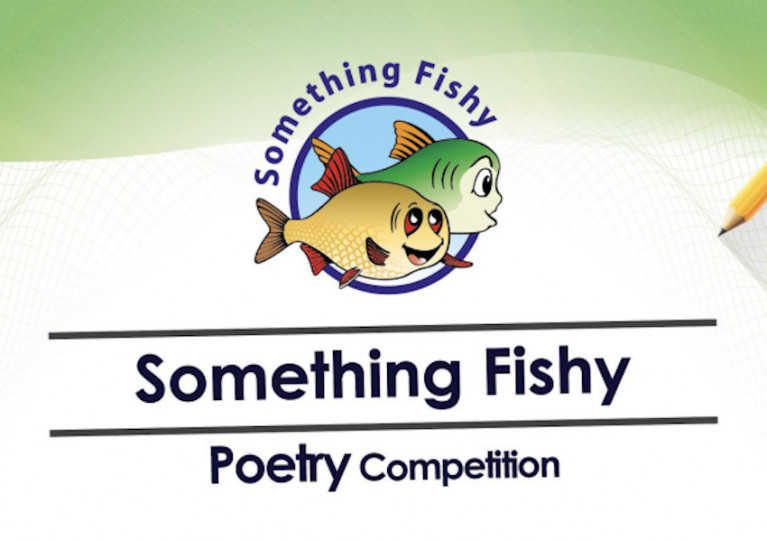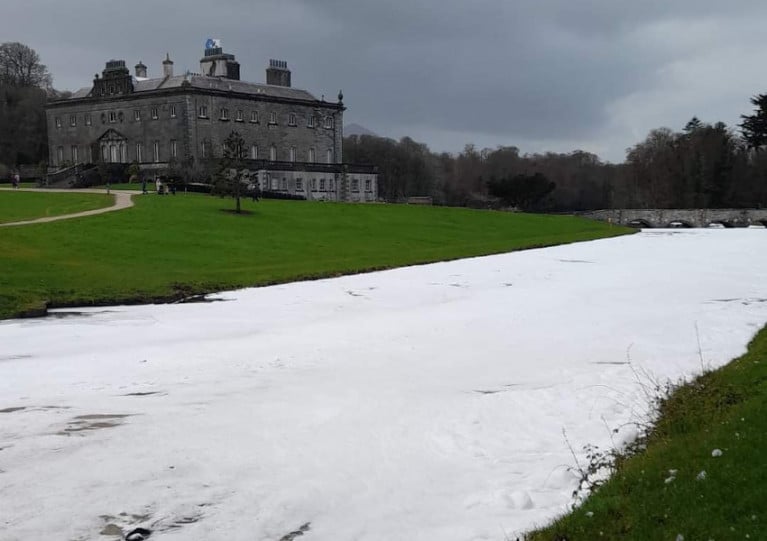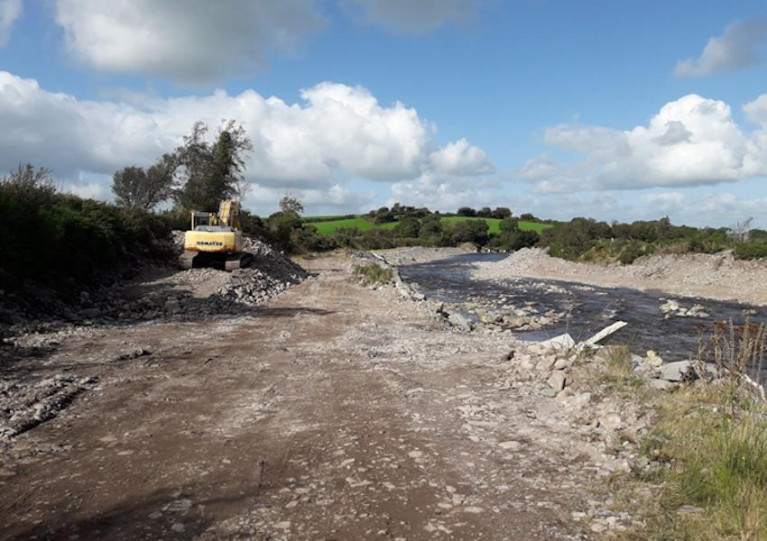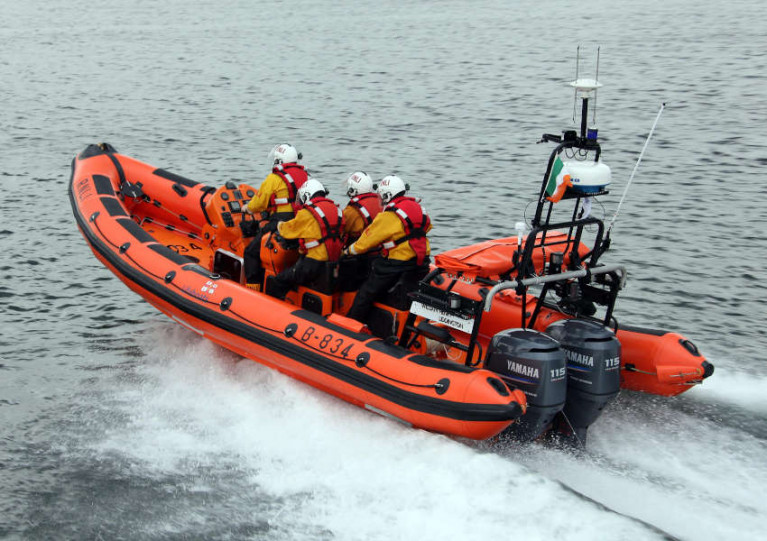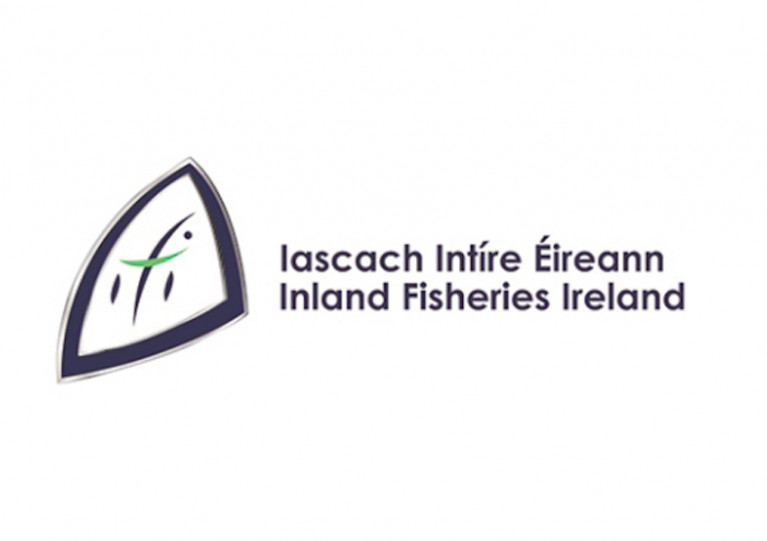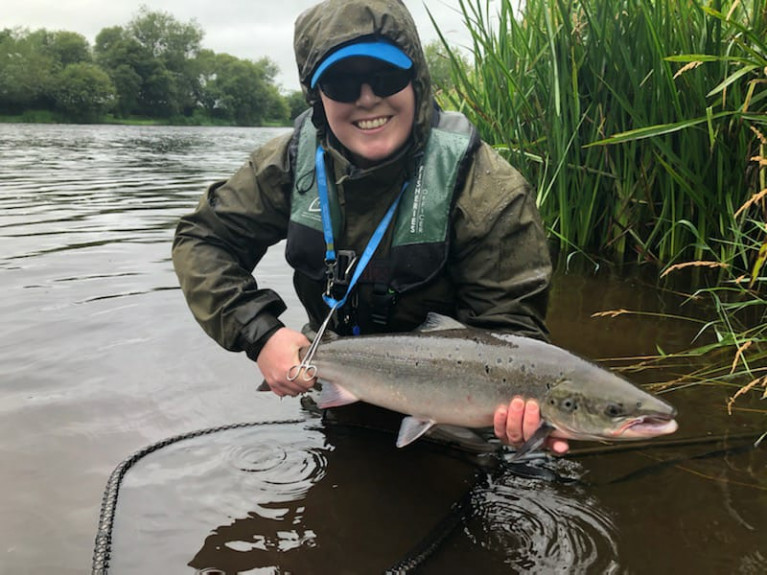Displaying items by tag: Inland Fisheries Ireland
Bluefin Tuna Data Collection Fishery Programme Returns for 2021
Building on the success of pilot programmes in 2019 and 2020, the Tuna CHART (CatcH And Release Tagging) fishery to collect scientific data on bluefin tuna will return in 2021, subject to COVID-19 restrictions.
Tuna CHART is a collaborative scientific programme between Inland Fisheries Ireland and the Marine Institute in partnership with the Sea Fisheries Protection Authority, the Department of Agriculture, Food and the Marine (DAFM) and the Department of Environment, Climate and Communications (DECC).
In 2020, the Tuna CHART programme authorised 22 charter skippers to operate a scientific fishery — in which anglers participated fully — to catch, tag and release bluefin tuna. These professional skippers were trained to tag, measure and record bluefin data.
Despite the limitations of the pandemic, 685 bluefin tuna were caught, tagged and released around the Irish coast — a 230% increase in bluefin tagged on the previous year.
 File image of bluefin tuna in Donegal Bay Photo: David Morrissey
File image of bluefin tuna in Donegal Bay Photo: David Morrissey
The most productive sites were the North-West and the South coast, mainly the waters of the Cork coastline. As many as 11 bluefin were tagged on one angling trip, a new Irish record. The largest tuna tagged was 275cm, weighing an estimated 822lbs.
All tuna were carefully handled subject to strict guidelines set by the Tuna CHART programme and all were released alive. Data from the tagging programme has been collated by the partnership for reporting to the International Commission for the Conservation of Atlantic Tuna (ICCAT).
This year a maximum of 25 authorisations may be granted to qualifying vessels and skippers around the Irish coast for fishing between 1 July and 12 November. Applications are now open and will be accepted until 1pm on Friday 9 April.
Depending on the successful operation and review of this year’s fishery, it is intended that a scientific catch-and-release fishery may also operate in 2022.
The partnership says a core aspect of the Tuna CHART programme is the welfare and successful release of the bluefin tuna. Authorised skippers will be required to have high specification rods, reels and line in advance of the open season in order to ensure that the fish is brought alongside the vessel to be measured and tagged in the water in a timely manner.
Data collection for scientific assessment is the primary purpose of the fishery and will continue to be a key requirement for skipper participation in this scientific catch-and-release fishery, the partnership adds.
Skippers will be required to collect data on every bluefin trip undertaken and each bluefin tuna they catch, tag and release, and their angling and data recording expertise is an important part of the overall survey programme.
Anglers will have an opportunity to participate in this fishery and contribute to this important scientific study by chartering and fishing from authorised vessels only. Unauthorised vessels are not permitted to target or catch bluefin tuna, and any unauthorised person found to be targeting bluefin tuna will be prosecuted. Applications for authorisations are open to charter skippers only.
Go Fishing Week is a Virtual Celebration of Angling Next Month
For the first time ever, Inland Fisheries Ireland (IFI) launches a virtual Go Fishing Week — a national celebration of angling with a programme of online events taking place.
Running from Sunday 25 April to Monday 3 May, Go Fishing Week provides an opportunity to connect with people across the country to encourage them to try fishing by making information accessible to all.
The programme of events will spread awareness of a series of themes during the course of the week, including sustainability, protecting habitats and wellbeing benefits.
IFI chief executive Francis O’Donnell said: “This year Go Fishing Week aims to encourage people to learn more about angling while also having important conversations around sustainable fishing, climate change and the cultural significance of our inland waters here in Ireland.
“We are delighted this year to be able to bring our events into a virtual capacity and make them accessible to everyone by doing so. From webinars, podcasts and videos to virtual competitions we hope that people of all ages will get involved and join us in celebrating Go Fishing Week 2021.”
All events will be free to join but registration may be required. Some of those scheduled for the week include:
- Specimen Fish: Join the Irish Specimen Fish Committee in a webinar to learn all about specimen fish and the records of Irish specimen fish. The webinar will take place on Sunday 25 April.
- Free a Flounder: Watch a video to show you how to safely remove a hook from a flounder and release it back into the water.
- Safety on the Water: Join a webinar on all things around how to be safe around water especially as we come into the peak angling season and raise awareness of safety among all new anglers.
As part of the event, IFI is also running a video competition. ‘Why I Love to Fish’ is an initiative to get more people to spread the word about fishing by sharing a short video clip of their angling adventures online and telling the world what angling means to them.
To learn more about what is happening and how you can get involved, visit the IFI website and catch up with social media updates in the run-up to the week on Facebook and Twitter.
Inland Fisheries Ireland (IFI) recently secured two separate convictions for illegal netting of salmon on the Barrow and Nore rivers respectively.
At a sitting of Kilkenny District Court on Tuesday 23 February 2021, Richie Lennon of New Ross, Co Wexford was fined €300 together with a €500 contribution towards costs following a prosecution taken by IFI.
Lennon pleaded guilty to the offences of illegal netting, the possession/control of four salmon and the refusal to give the name and address of another person when lawfully demanded.
The breaches of fisheries legislation occurred on 22 July 2020 on the River Barrow near Bauck in Co Carlow.
IFI fisheries officers outlined the facts of the case to the court and how Lennon had been observed in the act of illegal netting on the River Barrow, attempting to capture salmon.
Evidence in relation to the offence was given before Judge Carthy. Following the conviction, details of a previous prosecution against Lennon which had been dealt with at Wexford District Court on 15 April 2014 when the Probation Act had been applied was identified.
Judge Carthy made it clear to Lennon that if he appears in court again on similar offences, she will consider a prison sentence.
‘On the River Barrow and the River Nore, salmon stocks are well below their conservation limit and require protection’
On the same day in Kilkenny District Court, Michael Hynes of Ballybeg, Co Waterford was fined €300 together with a €500 contribution after he pleaded guilty to the offences of illegal netting, the possession of seven salmon and the refusal to give the name and address of another person when lawfully demanded.
The breaches of fisheries legislation here occurred on 22 June 2020 on the River Nore, in the townland of Clonamery, Co Kilkenny.
Evidence in relation to the offence was given before Judge Carthy sitting at Kilkenny District Court. IFI officers outlined the facts of the case to the court that Mr Hynes was apprehended and found to be in possession of seven dead salmon in his vehicle.
Lynda Connor, director of the South Eastern River Basin District at IFI, said: “I would like to commend the fisheries officers’ efforts and continuous commitment to protecting salmon.
“On the River Barrow and the River Nore, salmon stocks are well below their conservation limit and require protection. This type of illegal activity can have devastating effects on future stocks of salmon.
“These two convictions highlight the ongoing issue of illegal netting for salmon and IFI’s zero tolerance of this serious misconduct.”
Inland Fisheries Ireland is seeking applicants for the 2021 recruitment campaign for seasonal fisheries officers nationwide.
The positions will see the successful applicants support the development and protection of Ireland’s angling and fisheries resource during the summer period.
There are numerous roles available across six operational districts on a six-month basis, with contracts commencing from Monday 31 May and training provided to all new recruits. Interviews will take place on 14, 15 and 16 April 2021.
The locations for the new positions will be based across the country in the following districts:
- Eastern River Basin District: CityWest, Co Dublin; Kilcoole, Co Wicklow; Virginia, Co Cavan; Drogheda, Co Louth.
- South Eastern River Basin District: Enniscorthy, Co Wexford; New Ross, Co Wexford; Carrick-on-Suir, Co Tipperary.
- South Western River Basin District: Bantry, Co Cork; Farnanes, Co Cork; Tralee, Co Kerry; Kenmare, Co Kerry.
- Shannon River Basin District: Listowel, Co Kerry; Limerick City; Co Clare; Lough Sheelin, Co Cavan; Drumsna, Co Leitrim.
- Western River Basin District: Galway City, Lough Corrib, Co Galway; Erriff Fishery, Co Galway; Moy Fishery, Co Mayo; Bangor, Co Mayo; Ballina, Co Mayo.
- North Western River Basin District: Cavan, Co Cavan; Ballyshannon, Co Donegal; Letterkenny, Co Donegal; Clady Crolly, Co Donegal; Northern Co Donegal.
Francis O’Donnell, chief executive of Inland Fisheries Ireland (IFI), says: “Our seasonal fisheries officers are an important asset to Inland Fisheries Ireland during our busiest operational time of the year.
“We invite applications for these seasonal positions which will support the ongoing protection, conservation and maintenance of our fisheries resource. I encourage all those interested in playing a critical role in helping to protect and develop Ireland’s precious fisheries resource to submit an application.”
Roisin Bradley, head of HR at IFI, says: “We are looking for applicants who are passionate about developing and protecting our fisheries resource, have an appreciation for the natural environment and who have excellent interpersonal skills.
“Our fisheries officers ensure we have the capacity to carry out necessary work as custodians of this precious resource. We look forward to welcoming the new members to our team in the summer.”
The closing date for applications is Monday 22 March. To find out more about the roles and how to apply, visit www.fisheriesireland.ie/careers
National Schools Competition Once Again Fishing for Young Poets
Primary school pupils across Ireland are once again being asked to get poetic as the Something Fishy poetry competition returns for 2021.
Started last year by Inland Fisheries Ireland and the Blackrock Education Centre to keep pupils engaged while out of the classroom during coronavirus restrictions, the contest asks school children to write a short verse about fish and their environment.
This year, however, the poem must be an acrostic, in which the first letter of each line spells out a word — in this case ‘STREAM’.
Pupils are also encouraged to illustrate their poems with their own artwork to complete their submissions across three categories — fifth class, sixth class and Irish language — and be in with a chance to win some great prizes.
These prizes include fishing kits to the value €100 and outdoor field trip kits worth as much as €50.
Suzanne Campion, head of business development at Inland Fisheries Ireland, said: ‘We are delighted to launch this competition for the second year in a row and we are looking forward to seeing the imaginative works the young poets create.
“There are lots of fun and interactive resources available on www.somethingfishy.ie to help inspire budding poets.”
Only one entry is permitted per student and it is to be original work. The closing date for entries is Friday 28 May.
Parents/guardians are being asked to email the entry to [email protected] and to include the student’s name, class (5th or 6th) and school name and address.
The winning illustrated poems will be chosen by a panel of judges, and winners will be announced on Friday 18 June.
Fisheries Officers Investigate Pollution Incident in Westport River Known for Brown Trout
Inland Fisheries Ireland (IFI) investigated a pollution incident that occurred last weekend on the Carrowbeg River in Westport, Co Mayo.
IFI received a number of calls to the hotline number and had a report from the landowner where the pollution incident occurred last Saturday 16 January.
Fisheries staff responded to the report of what’s understood to be an accidental detergent discharge into the Carrowbeg River that afternoon.
The Carrowbeg River is the main river that runs through Westport town and has an abundant indigenous brown trout population, as well as being is an important amenity to the local community.
IFI officers attended the scene and worked with the landowner to identify the source and to carry out immediate remedial works.
IFI says its staff continue to monitor the site and carried out kayak and drone surveys of the catchment area over the weekend to assess implications for the fishery. Surveys to date have not found any evidence of a fish kill resulting from the incident.
IFI says it has had “subsequent engagement with the landowner regarding remediation works to be undertaken at the site” and is liaising with with Mayo County Council’s Environmental Section on analysis of samples from the affected stretch of river.
Patrick Gorman, Galway director in the Western River Basin District at IFI, says: “Inland Fisheries Ireland urges members of the public to be aware of the environmental risk posed to their local waterbodies should such discharges be made into road or car park drain networks.
“Members of the public can report suspected pollution or poaching incidents to Inland Fisheries Ireland’s 24-hour confidential hotline on 1890 34 74 24.”
A farmer from Beaufort in Co Kerry was convicted and fined €3,300 plus costs following a prosecution taken by Inland Fisheries Ireland (IFI).
In a hearing at Caherciveen District Court on Thursday 10 December, Judge David Waters convicted Raymond Breen under Section 173 (d) of the Fisheries Consolidation Act 1959 for carrying out works in the Gaddagh River which damaged sensitive spawning beds.
While a charge of obstruction was struck out, Judge Waters commented that he could not ignore the defendant’s behaviour when considering the appropriate penalty.
The Gaddagh River, a tributary of the River Laune and in a Special Area of Conservation (SAC), is an important spawning habitat for Atlantic salmon, a species protected under Irish and European law.
The court heard evidence that an inspection carried out by IFI fisheries officers discovered substantial amounts of spawning gravel removed from the river and stock-piled along a 250m section of bank.
Heavy machinery tracks were recorded across the riverbed, the protected spawning gravels and on both banks.
Evidence was given that the engine of a tracked earth-mover at the site was hot when discovered but the driver could not be located. The scene was described in court as a “working site”.
Sean Long, director of the South Western River Basin District at IFI, said: “This is a serious environmental crime. The removal of gravel from spawning beds will directly impact our already endangered Atlantic salmon stocks by drastically reducing usable spawning gravel.
“We urge all landowners to take responsible action and to contact their advisors or Inland Fisheries Ireland before carrying out any works that may damage watercourses on or adjacent to their land.”
Bundoran Lifeboat Crew Help Rescue Man from Boat Aground Off Ballyshannon
Volunteers from Bundoran RNLI were part of a multi-agency operation to rescue a man whose small boat ran aground on rocks in Ballyshannon yesterday afternoon (Sunday 20 December).
The man raised the alarm from his boat which had run aground off the island of Inis Saimer just before 1pm, and Malin Head Coast Guard requested the launch of Bundoran’s lifeboat as well as the Sligo-based Irish Coast Guard helicopter Rescue 118.
However, it was determined that sea conditions would render it unsafe for the inshore lifeboat to get across the bar at the end of the Erne Estuary.
Instead, four lifeboat crew travelled by road to Ballyshannon where an Inland Fisheries Ireland patrol boat was already close to the casualty vessel.
Together the fisheries officers and lifeboat volunteers evacuated the man from his boat and brought him safely to shore and the into the care of paramedics.
In the meantime, the Bundoran lifeboat was transported by road under Garda escort to Ballyshannon, where it was launched and towed the casualty boat away from the rocks.
Bundoran lifeboat helm Michael Patton said: “This was another good outcome with the cooperation of our colleagues at Rescue 118, Inland Fisheries [Ireland], the National Ambulance Service and the Garda Siochana.
“We were glad to be able to get the man safely off the boat and return his boat to him.
“He was also wearing a lifejacket, and we would remind anyone taking to the water that this is an essential piece of equipment anytime you set sail.”
Anglers Urged to Heed Public Health Advice & Fish Sustainably Ahead of New Salmon Season
Ahead of the new salmon season on Friday 1 January, Inland Fisheries Ireland (IFI) reminds anglers to adhere to public health advice when planning their fishing.
And the State body responsible for Ireland’s freshwater and inshore sea fisheries has confirmed that no prize will be offered for the first salmon catch of 2021, in order to discourage anglers from congregating.
Under current guidance, inter-county travel is permissible until Wednesday 6 January, after which people may not leave their own county for non-essential travel. Angling is non-essential and does not qualify.
Whenever fishing, anglers are encouraged to maintain social distancing, wash hands frequently, wear a mask when around other people and not to share vehicles with people from other households.
IFI offices are closed over Christmas, and licences will not be sent out between Christmas and New Year. With current postal delays, anglers are advised to shop now to get their licence before Christmas. Anglers are encouraged to buy licences online.
Anglers are also reminded that many kelts are present in rivers at this time. These thin and coloured salmon, if caught, must be handled carefully and returned immediately to the water.
Salmon & Sea Trout Angling Licences for 2021 Now Available
Inland Fisheries Ireland (IFI) has reopened its sales of salmon and sea trout angling licences for the 2021 season.
E-licences can now be purchased online and will be delivered along with a logbook straight to your phone or computer. Gill tags will be dispatched by post.
There is no price change for salmon and sea trout angling licences this year and licence fees will remain the same across all classes, including those for juvenile anglers.
Anglers are legally required to be in possession of a licence and logbook when fishing for salmon or sea trout. Online licences must be printed off along with the logbook and in the possession of anglers while fishing.
For anglers who require tags on or before Tuesday 5 January, online licences must be purchased on or before Monday 21 December.
Alternatively, angling licences will be available to purchase from approved licence sales distributors from the end of December/early January.
For those anglers who do not require tags in advance of 5 January, online licences and logbooks will be available from the IFI online shop throughout the Christmas period.
Anglers are advised to comply with Government guidelines specific to the region in which they live and wish to travel to. IFI has published updated advice for anglers, who are also reminded to check before travelling as due to Covid-19, working arrangements for distributors and fisheries may have changed.
IFI chief executive Francis O’Donnell said: “We are happy to announce the opening of 2021 licence sales for salmon and sea trout angling. We would like to use this opportunity to recognise the contribution salmon and sea trout anglers make to the sustainability of the resource by paying their licence fee and supporting the Salmon and Sea Trout Rehabilitation, Conservation, and Protection Fund as a result.”
The costs for salmon licences will remain as follows:
- All Districts (ie all Regions) Annual: €100
- Juvenile (under the age of 18 years) All Districts Annual: €10
- One District, Annual: €56
- All districts, 21 Days: €40
- All districts, 1 Day: €20
- Foyle Area Extension: €80
IFI also reminds all salmon and sea trout anglers to return their 2020 angling logbook and unused gill tags as soon as possible, even if there is no catch recorded.
Anglers are asked to make the return via the business return envelope which was supplied at the time of license purchase. Otherwise, anglers can return their completed logbook and unused tags to the IFI office address on their licence/logbook.
These returns will provide vital information regarding the status and management of our wild Atlantic salmon and sea trout stocks for the future.



























